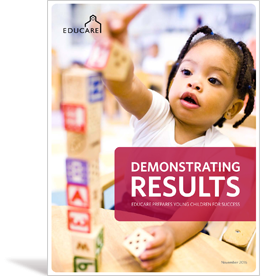RESULTS
Educare tracks program quality and child outcomes with the Educare Implementation Study.
Several years of rigorous evaluation shows that when children leave Educare for elementary school, the majority are academically, socially and emotionally prepared for kindergarten.
Educare works for each child and every child. We partner with parents and use teaching methods that are proven to work—and we’re always working on improving.
Our local results include:
- Daily parent-child reading resulted in a 13% increase in their students’ Peabody Picture Vocabulary Test (PPVT) scores, which is one of the key measures of kindergarten readiness.
- These increased PPVT scores helped parents feel empowered and motivated.
- In 2017-2018, expressive communications for pre-kindergarteners also significantly improved.
- Students experienced a 33% increase in positive indicators on the Preschool Mental Health Climate Scale (PMHCS) from fall to spring.
- Our partnership with the Early Childhood Innovation Network (ECIN) has resulted in an increase in parent-to-parent support and decreases in sleep disturbance for parents, parental distress, total parent stress, and symptoms of anxiety, depression, and trauma.
National research shows that when children leave Educare, they are academically, socially, and emotionally prepared for kindergarten. Kindergartners who spend their early years at Educare arrive at elementary school ready to learn and on par with middle-income peers. Children, including dual-language learners, who enroll in Educare before age three have better language skills than their peers who enroll during their preschool years.
Some of Educare’s national results include:
- Children who enter Educare at younger ages have higher levels of receptive vocabulary skills at kindergarten entry than children who start Educare later.
- Educare students, including dual-language learners, outperform peers on vocabulary assessments.
- Dual-language learners benefit even more from earlier entry and longer involvement in Educare, demonstrating stronger gains in English language ability.
- Educare’s intentional focus on building children’s social-emotional skills before age three and continuing through age five results in higher ratings of social-emotional skills, including teacher-rated self-control and initiative, among most children.
- The majority of Educare parents report engaging with their children at least three times a week in activities like talking to them about their day at Educare, teaching them letters or numbers and reading to them.


